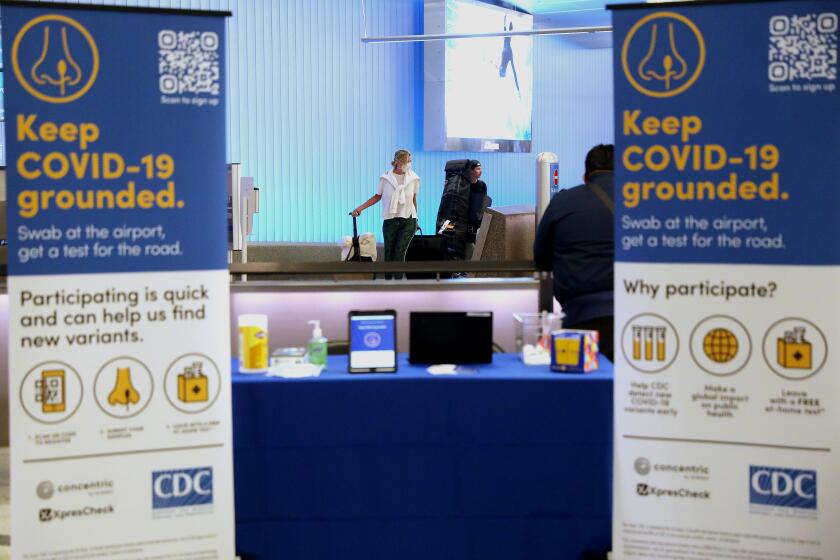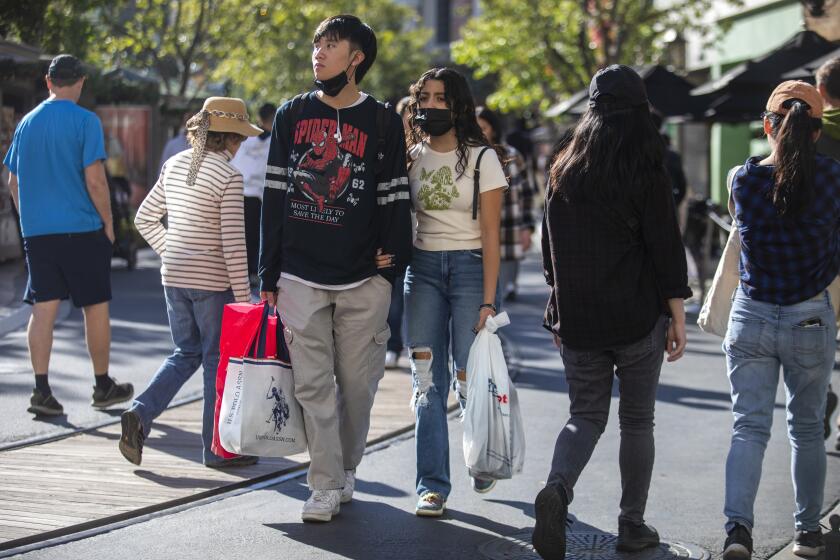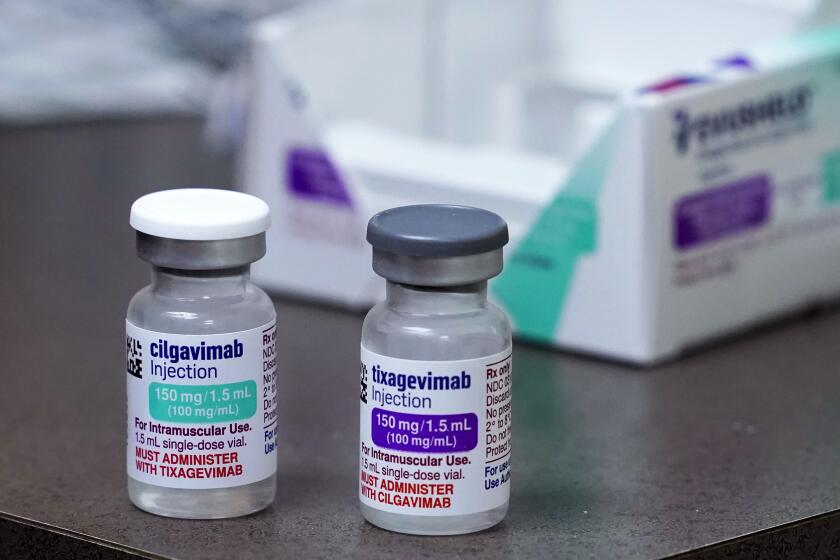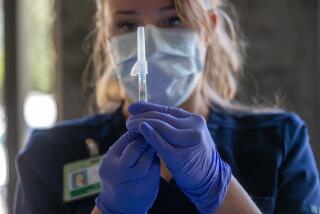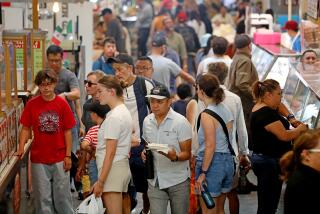L.A. County relaxes universal mask recommendation as COVID eases
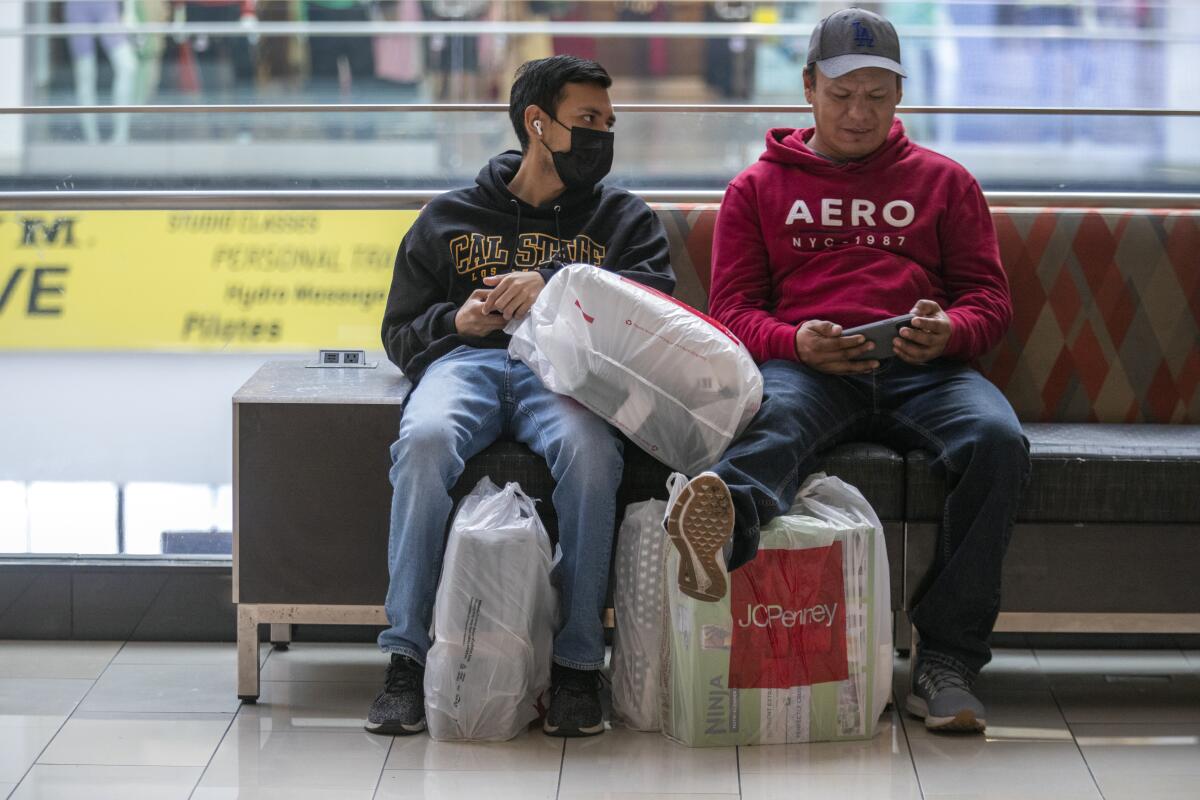
With coronavirus transmission on the decline, Los Angeles County health officials have relaxed their broad recommendation that everyone mask up indoors while in public.
While wearing a face covering is still required in certain settings — such as healthcare facilities and nursing homes — and still encouraged aboard public transit, the decision for most should now be considered a matter of personal preference.
That isn’t to say masking is no longer useful, Public Health Director Barbara Ferrer said Thursday.
“I do encourage people to continue to think of masking as an effective tool to reduce exposure to COVID-19,” she said, as she continued wearing a mask — as usual — during her weekly briefing.
Los Angeles County has seen marked improvement in its pandemic metrics. A much-discussed double COVID wave fueled by gatherings and travel has not materialized.
Ferrer also continues to strongly recommend that individuals more vulnerable to severe illness keep wearing masks in indoor public settings, especially those that are crowded or have poor ventilation.
Businesses, schools and offices can still choose to mandate mask use.
“We encourage workers who are going to have many, many exposures during the day to go ahead and keep those masks on,” Ferrer said. Workers with vulnerable family members also may elect to continue masking in public to reduce the chance of bringing an infection home.
State occupational health and safety rules still require workers who have been exposed to the coronavirus to wear masks at their worksite for 10 days after their exposure. Recently infected individuals who have exited isolation because they’ve tested negative on a rapid test must still wear a mask at work through the 10th day following onset of COVID-19 symptoms or their first positive test.
L.A. County had strongly recommended universal indoor masking in public settings since mid-November, when its coronavirus case rate topped 100 cases a week for every 100,000 residents, a level that is considered high.
L.A. County’s hard-won progress was attributed both to community immunity and tools that have blunted some of the coronavirus’ worst effects.
The shift in the county’s official masking stance came a little more than a week ago, after the region’s weekly coronavirus case rate fell below 100.
For the record:
12:23 a.m. Jan. 28, 2023A previous version of this article incorrectly said the county, as of Friday, was reporting 951 cases a week. L.A. County reported 951 cases a day for the seven-day period that ended Friday.
L.A. County’s case rate has continued to fall since then. The county was reporting 66 cases a week for every 100,000 residents, or 951 cases a day for the seven-day period that ended Friday. The county remains in the low COVID-19 community level outlined by the U.S. Centers for Disease Control and Prevention.
Authorities note official case tallies are likely a significant undercount at this point in the pandemic — a byproduct of increased use of at-home tests, the results of which are not reliably reported to public health agencies, as well as people testing less regularly.
However, wastewater surveillance data also suggest coronavirus transmission is dropping.
For weeks, L.A. County reached a plateau, with wastewater concentrations hovering at about 70% of the peak noted during last summer’s surge. But in early January, levels plunged to about 29% of the summer peak, according to data released Thursday. The county considers that to be of “low concern,” according to Ferrer.
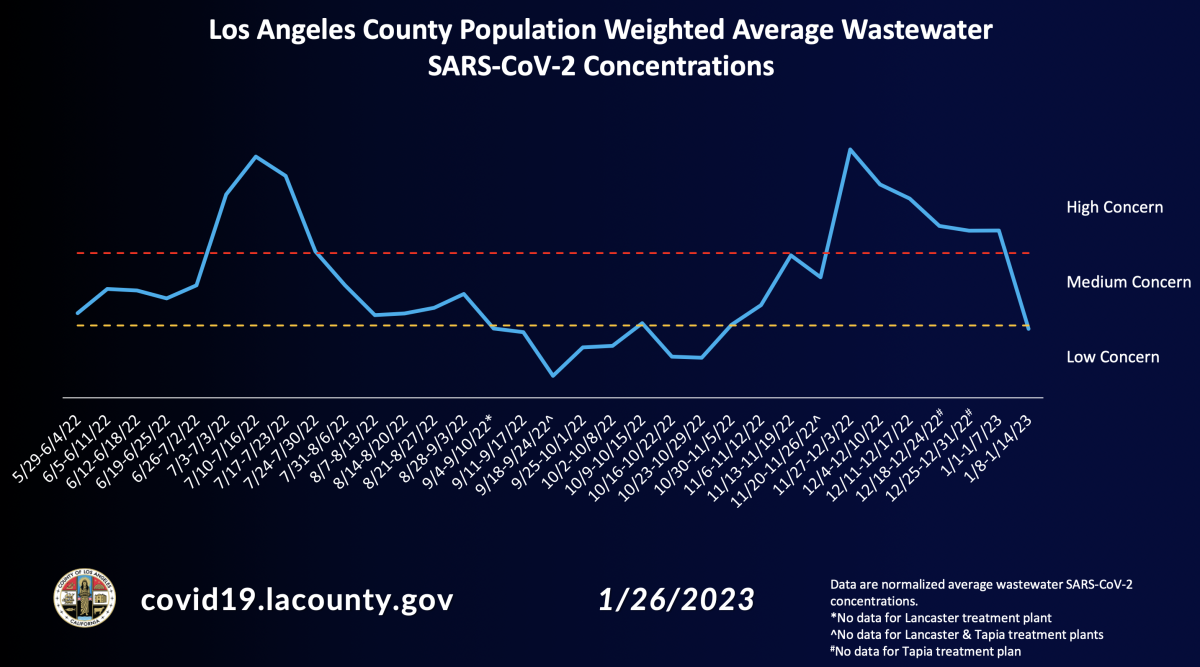
“These numbers confirm that the decline in transmission is both real and significant. And hopefully the decline in transmission will be followed soon by a decrease in deaths,” she said.
Promisingly, levels of flu and respiratory syncytial virus, also known as RSV, also have fallen significantly in recent weeks. There is, however, a risk that flu activity could rebound this spring, Ferrer said, and RSV is expected to continue to circulate.
“The same measures we’ve been accustomed to for COVID-19 — frequent handwashing, staying home when sick, wearing a mask in crowded places — will also continue to prevent transmission of these other respiratory viruses,” Ferrer said.
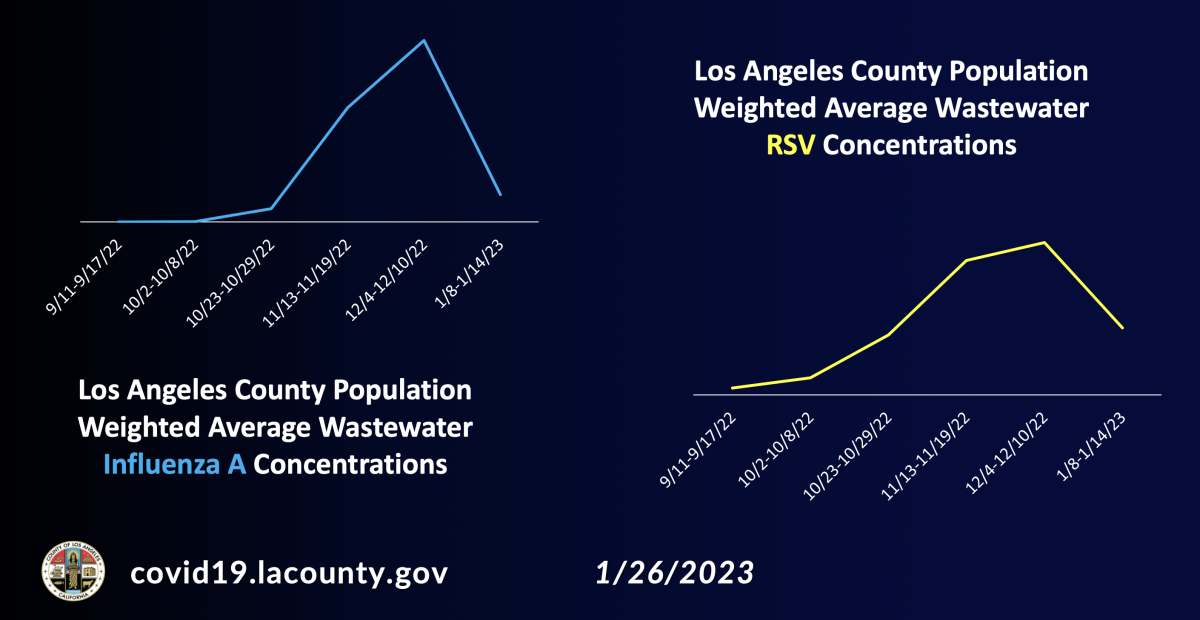
Hospitalizations also are declining. As of Thursday, there were 722 coronavirus-positive patients in hospitals in L.A. County. That has been nearly cut in half since early December.
The apparent peak recorded this fall and winter — 1,308 on Dec. 8 — is slightly lower than the summer high point of 1,329 on July 20, and significantly below last winter’s wave, which maxed out at 4,814.
The record for coronavirus-positive hospitalizations came during the first winter of the pandemic, when vaccinations were still in short supply and hospital morgues were overflowing. That came on Jan. 5, 2021, when 8,098 were hospitalized.
COVID-19 deaths have stabilized, but are still relatively high compared to last summer. L.A. County has been averaging 140 deaths per week for nearly a month, higher than last summer’s max of 122, but lower than the prior winter’s peak of 513. L.A. County recorded 43 COVID-19 deaths per week during its lowest point in the fall.
Evusheld was designed to protect immunocompromised people from serious cases of COVID-19, but the latest Omicron variants have rendered the drug useless.
Even with the county relaxing its masking recommendation, Ferrer said she still keeps hers on as much as possible in indoor public settings.
“I’m an older person. I’m over 65, and I don’t want to get sick,” she said.
But Ferrer has started eating indoors at restaurants if no outdoor option is available, since the risk of viral transmission is lower. She said she keeps her mask on unless she’s eating or drinking, and patronizes places where she thinks the ventilation is decent.
“Everyone knows I love to be outside. So mostly I try to be outside,” she said. “But ... I go inside when that’s not an opportunity.”
More to Read
Sign up for Essential California
The most important California stories and recommendations in your inbox every morning.
You may occasionally receive promotional content from the Los Angeles Times.
